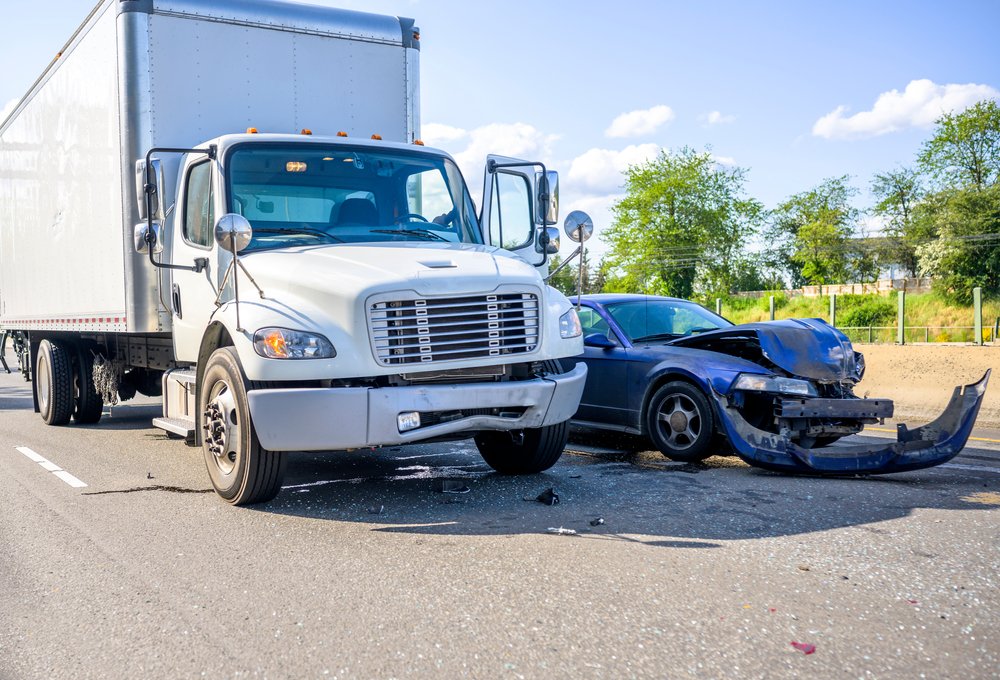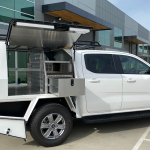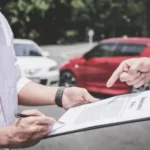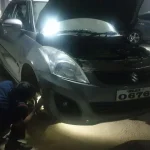Truck accidents can be life-altering events, leaving victims with severe injuries, emotional distress, and financial burdens. If you’ve been involved in a truck accident, it’s crucial to understand the steps you need to take to protect yourself and your rights. In this article, we’ll explore the essential actions to take after a truck accident and how you can seek justice and compensation for your losses.

Content
1. Prioritize Your Safety and Health
The first and most important step after any accident, especially a truck accident, is to ensure your safety. Check yourself and your passengers for injuries. If you or anyone else is injured, immediately call 911 for medical assistance. In many cases, truck accidents can cause severe injuries due to the sheer size and weight of the vehicles involved.
Even if you don’t feel injured, it’s essential to seek medical attention as soon as possible. Some injuries, like whiplash or internal bleeding, may not present symptoms immediately. A medical professional can assess your condition and provide the necessary treatment.
2. Gather Evidence at the Accident Scene
After ensuring your safety and seeking medical help if needed, the next step is to gather evidence from the accident scene. If you are physically able, take photos of the scene, the damaged vehicles, and any visible injuries. Document any skid marks, road conditions, or obstacles that might have contributed to the accident. Additionally, note the time, location, and weather conditions.
If possible, speak to witnesses at the scene and obtain their contact information. Their testimony can be crucial in establishing the cause of the accident and supporting your case. Exchange insurance information with the truck driver and any other involved parties.
It’s also a good idea to get the contact details of the trucking company, especially if the truck driver is employed by a company. In some cases, the trucking company could be held liable for the accident if their driver was negligent or violated safety regulations.
3. Contact Law Enforcement
Make sure to file a police report, even if the accident seems minor. The police report will serve as an official record of the incident and could be helpful in determining fault and insurance claims. When the authorities arrive at the scene, provide them with accurate information, but avoid admitting fault or making statements that could be misinterpreted as an admission of guilt.
The police report will likely include important details about the accident, including the names of those involved, vehicle registration numbers, and any potential witnesses. It can also help establish which party was at fault for the accident.
4. Consult with an Experienced Truck Accident Lawyer
One of the most important actions you can take after a truck accident is to consult with an experienced lawyer who specializes in truck accidents. Truck accidents often involve complex legal issues, such as determining liability, dealing with multiple insurance companies, and understanding regulations specific to the trucking industry.
A skilled attorney can help you navigate the legal process, ensuring that your rights are protected and that you receive fair compensation. They can also help gather additional evidence, such as trucking company records, driver logs, and maintenance records, which could prove the truck driver or company’s negligence.
If you are unsure where to begin, you can reach out to law firms that specialize in truck accident cases. For example, More2You offers expert legal guidance to individuals involved in truck accidents. They can help you understand your options and work toward obtaining compensation for medical bills, lost wages, and pain and suffering.
5. File an Insurance Claim
After gathering evidence and consulting with a lawyer, you will need to file an insurance claim. If the truck driver was at fault, their insurance should cover your damages. However, in cases where the driver is underinsured or uninsured, you may need to file a claim with your own insurance company. Depending on your policy, this could involve your personal injury protection (PIP) or uninsured motorist coverage.
Be prepared to provide all the evidence you’ve collected, including photos, witness statements, and the police report, when submitting your claim. Your lawyer can help you navigate the insurance claims process to ensure that you don’t settle for less than you deserve.
6. Keep Track of Medical Expenses and Lost Wages
In the aftermath of a truck accident, it’s crucial to keep a record of all medical treatments, doctor visits, prescriptions, and other related expenses. These records will be important when calculating the total cost of your injuries and the compensation you’re entitled to. Similarly, if your injuries prevent you from working, keep a record of any lost wages. These expenses will be factored into your claim and can significantly impact the compensation you receive.
7. Be Patient and Follow Legal Guidance
Truck accident cases can take time to resolve. Depending on the complexity of the case, it may take months or even years to reach a settlement. During this time, it’s essential to follow the guidance of your lawyer, attend all medical appointments, and refrain from making public statements or social media posts about the accident. Anything you say or do could impact your case.
An experienced attorney, like those at More2You, will guide you through the process and ensure you are prepared for any challenges that may arise. They will help you understand your legal rights and options and will fight for the best possible outcome for your case.
Conclusion
After a truck accident, the path to recovery can be complicated and overwhelming. However, by following these steps—prioritizing your health, gathering evidence, seeking legal counsel, and being patient—you can protect yourself and ensure you are compensated fairly. If you need legal assistance, don’t hesitate to reach out to experienced professionals, such as More2You, who specialize in truck accident cases. They can provide the expert support you need during this challenging time and help you pursue the compensation you deserve.
For more information, visit More2You.

Daniel is the eco-conscious auto whisperer. His blog doesn’t preach; it educates on the world of green transportation. It’s your guide to reducing your carbon footprint without sacrificing style or speed.












